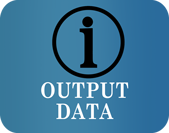Scientific journal of the Mykhailo Dragomanov Ukrainian State University.
Series 18. Law
invites the publication of scholars, graduate students, university students and research institutions, as well as practitioners who are actively engaged in scientific research in the field of legal sciences.
| Articles accepted for Issue No. 48, 2026 |
| The materials are accepted until January 27, 2026 |
| Placing an electronic version after March 31, 2026 |
| The printed version of the journal will be sent to authors of articles who order a printed copy by April 30, 2026. |
DOWNLOAD THE INFORMATION BOOKLET
DOWNLOAD THE EXAMPLE OF ARTICLING
To publish an article in issue № 48, 2026, you must have until January 27, 2026 inclusive:
- fill in the author's reference by the link;
- email to the editorial staff Этот адрес электронной почты защищён от спам-ботов. У вас должен быть включен JavaScript для просмотра. an article designed according to the specified requirements;
The editorial board carries out anonymous anonymous peer review of the article (single-blind review – the reviewer knows the author, but the author does not know the reviewer). After passing the review, the author will receive an e-mail with the results of the review (Article accepted for publication or Article must be revised).
After official confirmation and submission of details from the editorial board, the author pays.
- send a payment receipt for the publication.
The amount of funds to cover the costs of publishing articles in the "Scientific journal of the Mykhailo Dragomanov Ukrainian State University. Series 18. Law" is 1400 UAH. for one article up to 12 pages, in case of exceeding 12 pages. 50 UAH is additionally paid. for each additional page of the article. The publication fee covers the costs associated with review, proofreading and editing of articles, layout of the collection and placement of its electronic version.
The editorial board accepts for free publication individual articles by postgraduate students enrolled in state-funded programs, provided that they comply with the established requirements and principles of academic integrity.
Along with the article, postgraduate students enrolled in state-funded programs must submit a certificate from the postgraduate department confirming their enrollment. The certificate must bear the signature of the head of the postgraduate department and the official seal.
The electronic version of the journal is timely placed in public access on the publication's website.
If desired, the author of the article can order a printed copy of the magazine. The cost of a printed copy is UAH 800, which must be paid in addition to the publication fee.
Literature and annotations are also included in the total pages of a paid publication.
REQUIREMENTS FOR THE DESIGN AND CONTENTS OF SCIENTIFIC ARTICLES
Materials submitted in violation of the standards are not accepted for editing and publication.
Format A 4; margins - 2 cm (lower) x 2 cm (upper), 3 cm (left) x 1.5 cm (right); paragraph - 1.25 cm; line spacing - 1.5 cm; font - Times New Roman; skittles - 14.
Article structure:
- UDC
- Full Name.
- Title of the article (in Ukrainian and English).
- Abstract (1800 characters) and keywords (8-10 words) in Ukrainian and English.
- Article text.
- Used literature, designed according to DSTU 8302: 2015 «Information and documentation. Bibliographic reference. General Provisions and Rules of Assembly ”, as amended (UNCODE 01.140.40).It is prohibited citing and including in the reference list russian-language contributions published in any country, incl. papers written in other languages but published in russia and belarus.
- References.
In transliteration, observe the requirements of the Cabinet of Ministers of Ukraine Resolution “On streamlining the transliteration of the Ukrainian Latin alphabet” of January 27, 2010 № 55.
- Information about the author (s) in Ukrainian and English: surname, first name, patronymic; scientific degree, academic title (if any); position, organization where the author works, orcid-code, email address.
Article review
Academic integrity
The articles are checked for plagiarism using the software StrikePlagiarism.com developed by the Polish company Plagiat.pl.
Prohibition of using scientific works of the occupying country
It is prohibited citing and including in the reference list russian-language contributions published in any country, incl. papers written in other languages but published in russia and belarus.
Ethical standards
Editorial Board of the journal "Scientific journal of MP Dragomanov National Pedagogical University. Series 5 Pedagogical Sciences: Realities and Perspectives ”maintains a certain level of requirements in the selection and acceptance of articles submitted to the editorial staff. These rules are determined by the scientific direction of the journal and the standards of quality of scientific works and their presentation, accepted in the scientific community.
The editorial calls for adherence to the principles of the Code of Ethics for Scientific Publications developed by the Committee on Ethics of Scientific Publications (COPE).
Ethical Commitments to Journal Editors
The editor should review all manuscripts submitted for publication without prejudice, evaluating each manuscript properly, regardless of race, religion, nationality, or the position or place of work of the author (s).
Information is not allowed to be published if there is sufficient reason to believe that it is plagiarism.
All materials submitted for publication are carefully selected and reviewed. The Editorial Board reserves the right to reject the article or to return it for further revision. The author is obliged to revise the article according to the comments of the reviewers or editorial board.
The decision of the editor to accept the article for publication is based on such characteristics of the article as the importance of results, originality, quality of presentation of the material and the correspondence of the journal's profile. Manuscripts may be rejected without review if the editor believes that they do not fit the journal's profile. In making such decisions, the editor may consult with members of the editorial board or reviewers.
Ethical obligations of authors
Authors should ensure that they have written completely original articles, and that if the authors have used the work or words of others, then it has been properly framed in quotation marks or quotes.
Submitting an identical article in more than one journal is considered unethical and unacceptable.
The article should be structured, contain enough links and be designed as required.
Unfair or deliberately inaccurate statements in the article constitute unethical conduct and are inadmissible.
The author who corresponds with the editorial board must ensure that all co-authors have read and approved the final version of the article and have agreed to its publication.
The authors of the articles bear full responsibility for the content of the articles and for the fact of their publication. The editorial board does not bear any responsibility to the authors for the possible damage caused by the publication of the article. The editorial board has the right to remove an article if it is found out that in the course of publication the article violated someone's rights or generally accepted norms of scientific ethics. The editorial board informs the author of the fact of removal of the article.
Ethical obligations of reviewers
The editorial staff adheres to double-blind peer review to ensure that the manuscripts are evaluated objectively
Since the review of manuscripts is an essential step in the process of publication and, therefore, in the implementation of the scientific method as such, each scientist is obliged to do some work on the review.
If the selected reviewer is not sure that his or her qualification is relevant to the level of research presented in the manuscript, he must return the manuscript immediately.
The reviewer must objectively evaluate the quality of the manuscript, the experimental and theoretical work presented, its interpretation and presentation, and the extent to which the work meets high scientific and literary standards. The reviewer should respect the intellectual independence of the authors.
Reviewers should adequately explain and reason their opinions so that editors and authors can understand why their comments are based. Any statement that an observation, conclusion, or argument has already been published must be accompanied by a reference.
The reviewer should draw the editor's attention to any significant similarity between this manuscript and any published article or any manuscript submitted to another journal at the same time.
Reviewers should not use or disclose unpublished information, arguments, or interpretations contained in this manuscript unless the author agrees.
The peer review process is anonymous for both the reviewer and the authors (two-way "blind" peer review). Articles that fully comply with the requirements for the design and content of scientific articles and which have not raised comments and objections at the stage of the primary review of the editorial board are reviewed. Manuscripts that do not meet these requirements are not allowed for peer review. If the editorial board has commented on the article submitted, such manuscript shall be returned to the author for further elaboration and improvement.
The review shall be kept confidential within three to five days of the author's article being submitted to the journal. Reviewing helps the author to improve the quality of the scientific article, as well as gives reasons to the editorial board to decide whether to publish or reject it.
The review is a completed form, with a mandatory list of comments on the article. The editorial board sends the comments directly to the author of the article. The article is not subject to publication if the author does not want to amend its text.
Authors whose articles have received a negative review from a reviewer (or have been flagged for plagiarism or other reasons for rejection) are asked not to submit their articles (re / new) during the year in accordance with International Journal Rules.
Please contact the editorial office for any questions.






